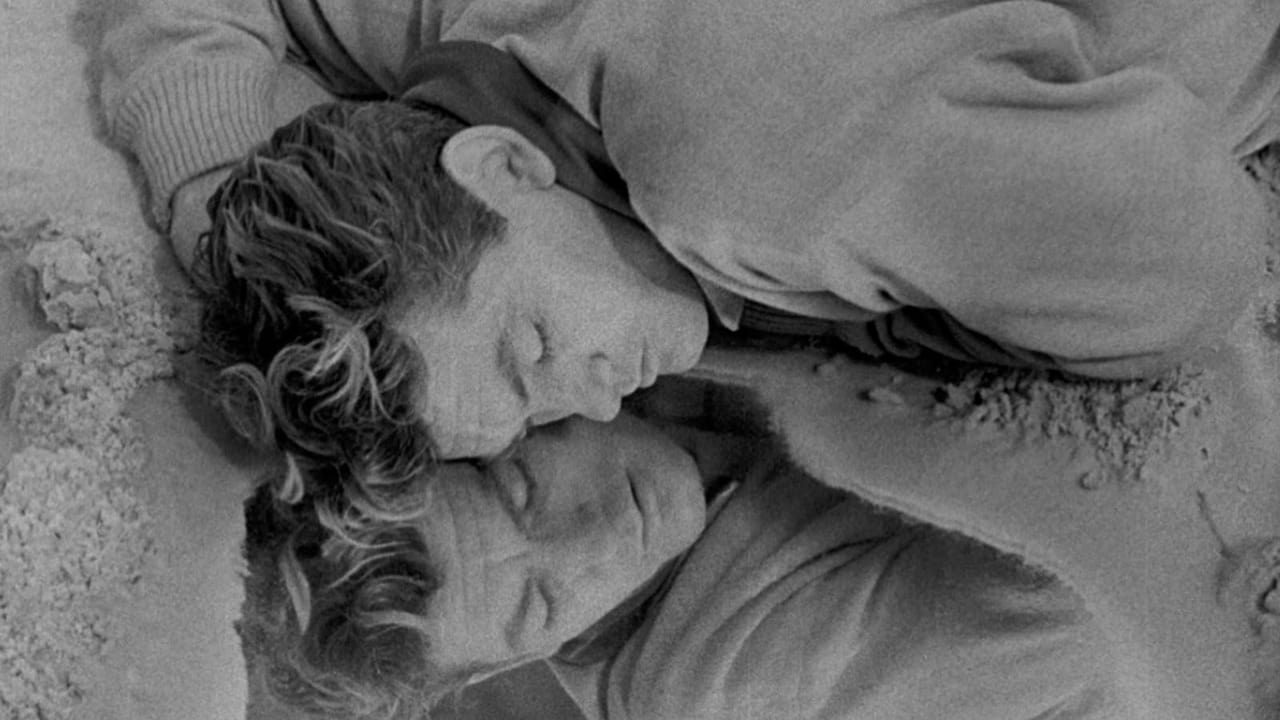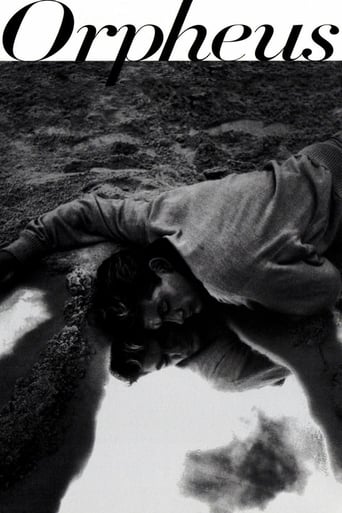

There is just so much movie here. For some it may be too much. But in the same secretly sarcastic way most telemarketers say the phrase, the title of this one is particularly apt.
... View MoreAt first rather annoying in its heavy emphasis on reenactments, this movie ultimately proves fascinating, simply because the complicated, highly dramatic tale it tells still almost defies belief.
... View MoreIt is an exhilarating, distressing, funny and profound film, with one of the more memorable film scores in years,
... View MoreThere's a more than satisfactory amount of boom-boom in the movie's trim running time.
... View MoreYou know what's REALLY surreal? Writing, in an age where cgi calls the shots, of a surrealist movie of sixty plus years ago and trying to see what seems today to be crude special effects as the poetic magic it must have seemed to its original audience. There are as many ways to 'read' it as there are facets on a snowflake, not least as a 'Resistance' fable - the was was barely five years over when it was made - and in retrospect the presence of Jean-Pierre Melville, who would go on to make one of the finest of all 'Resistance' movies, L'Armee des ombres, adds credence to this. On the other hand, there was a second director, Jean Pierre Mocky, in an equally small role and that tends to negate Melville. Then there's the Old Man And The Sea school, who see it as a metaphor in the sense that Cocteau, like Hemingway, was ageing (he was 60 when he made the movie) and not the force he was; the young Turks were waiting to savage him just as the sharks (critics) savaged the old fisherman/writer's fish/novel. Whatever it's a fine, poetic effort and should be on anyone's list.
... View MoreFrom its explosive opening where a brawl occurs at a café for poets that's "the nerve-centre of the world" to traveling through the afterlife to the very end, Orphée's mania never stops. It's an incredibly gripping and bizarre film which immediately evolves into a bad dream. It's grandest aspect is the visual treat that visionary director Jean Cocteau offers. The camera is fluid and active, whipping between characters and sets, exploring high and low angles. Though the highlight is the special effects, especially for its time even if clearly channeling Méliès, with seamless reversed shots, projections, wires and point of view shots involving mirrors. The narrative flows fluently to give a rich and inventive story, with elements of innovative humour, with double meanings and exaggerations, and tragedy redeemed. With its ambiguity between reality, dream or fantasy world, it could even be argued that there is no reality and it begins right in the fantasy, though the expert use of foreshadowing renders that aspect irrelevant in cinema.Despite it having a very compacted story, there's not enough emotional or thought-provoking ideas there for me to understand why it's considered a masterpiece, especially due to its consistent tension, rather than an ideal fluctuating tone. The characters, besides the surprising supporting character Heurtebise with a subtle performance from François Périer, there is little chemistry between the actors, who for the majority of the time give melodramatic performances solely for the camera. As it's a story trying to be about love, this only comes across as a sidenote to the spectacle. There is, however, the fascinating idea of how an artist can be so enamoured with inspiration that they neglect their real life and purpose of why they're creating their art. It also does not show any of the deaths, the films other main theme, which dramatically decreases their potential power. There is an incidental scene where the Inspector is talking to people in his office in which it has a brief flashback while a man is talking of what he's talking about - a technique Hiroshima Mon Amour later innovated. With the dazzling and inventive direction, Orphée is a great film, but too often doesn't take itself seriously enough.8/10
... View MoreJean Cocteau's masterpiece updates the story of Orpheus and Eurydice to a swinging Left Bank art colony, where the poet enlists the aid of Death herself (presented as the ultimate femme fatale) to help rescue his twice-dead wife from the Underworld. The film strikes a perfect balance between allegory and entertainment, combining the effortless depth of a true classic with some genuinely special effects, notably during the poet's journey through the looking glass into a limbo of lost souls. It certainly must rank among the most beautiful films ever made, and the lyrical texture is achieved without in any way compromising the element of fantasy. Cocteau even manages to inject some unexpected humor into the myth, after Orpheus wins the release of Eurydice from Hades on the condition that he never look at her again — not an easy task when trying to resume a healthy marital relationship.
... View MoreAn excellent, imaginative movie. Many of the reviews on this site say exactly what I feel so I'll avoid repeating their comments. I'll just ask one question.Who are the motor cyclists - the black riders of death? Apparently they were brothers and they make an indelible impression in the film just by their physical presence. A director - I think it was Clint Eastwood - once told an actor, 'Don't act, just stand there.' Well, you can see that advice in operation with the two motor cyclists. They don't act; they just are. And their impact is stunning. Attitude and body language say it all.But nowhere are these crucial characters identified, either in the film credits, modern DVDs, or any book I've read about Cocteau's films.So who are these mysterious men in black? Did they appear in other films? And what happened to them later in life? I think we should be told!
... View More